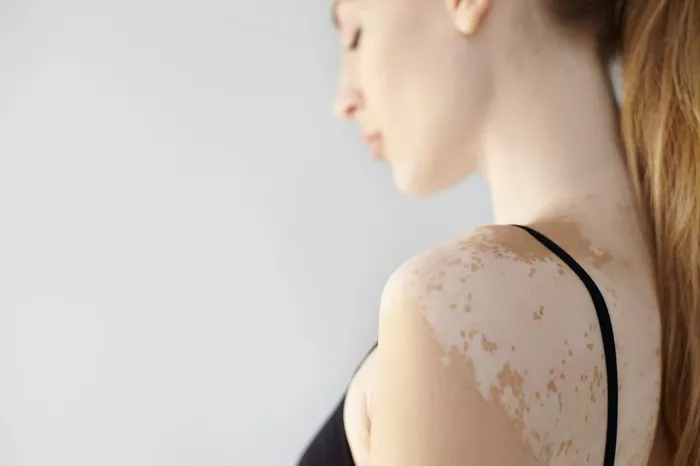Hives, also known as urticaria, are raised, itchy welts on the skin that can vary in size and shape. They can appear anywhere on the body and may be triggered by various factors, such as allergens, stress, medications, or infections. Understanding how to treat hives effectively can help alleviate symptoms and prevent future outbreaks.
Understanding Hives
Before diving into treatment options, it’s important to understand what hives are. Hives occur when histamine, a chemical released during an allergic reaction, causes blood vessels to leak fluid into the skin. This results in the characteristic welts that can be itchy and uncomfortable.
Types of Hives
Acute Hives: These last less than six weeks and are often caused by allergic reactions or infections.
Chronic Hives: These persist for six weeks or longer and may have no identifiable cause.
Initial Steps for Treating Hives
When you first notice hives, taking immediate action can help reduce discomfort. Here are some initial steps to consider:
1. Identify Triggers
The first step in treatment is identifying what caused the hives. Keep a diary of foods, medications, and activities to find potential triggers. Common triggers include:
Foods: Nuts, shellfish, eggs, and dairy.
Medications: Antibiotics, NSAIDs, and pain relievers.
Environmental Factors: Pollen, pet dander, and insect stings.
2. Avoid Known Allergens
Once you identify the trigger, avoid exposure to it. If you are allergic to a certain food or medication, eliminate it from your diet or regimen.
Over-the-Counter Treatments
There are several effective over-the-counter (OTC) treatments for managing hives. These treatments can help relieve itching and reduce the appearance of welts.
1. Antihistamines
Antihistamines are the most common treatment for hives. They work by blocking histamine, which reduces itching and swelling. Some popular antihistamines include:
Loratadine (Claritin): Non-drowsy and effective for daytime use.
Cetirizine (Zyrtec): May cause slight drowsiness but is effective for nighttime use.
Diphenhydramine (Benadryl): Fast-acting but can cause significant drowsiness.
Dosage: Always follow the recommended dosage on the package or consult a healthcare professional.
2. Corticosteroid Creams
Topical corticosteroids can be applied directly to the affected areas to reduce inflammation and itching. These are especially useful for mild cases of hives.
Usage: Apply a thin layer to the affected skin, usually 1-3 times a day as directed by the package.
3. Cooling Gels and Lotions
Cooling gels, such as aloe vera or menthol-based products, can soothe the skin and provide temporary relief from itching. These products create a cooling sensation that can help calm irritation.
Application: Use as needed on the affected areas.
Prescription Treatments
If OTC treatments are ineffective, your healthcare provider may prescribe stronger medications.
1. Prescription Antihistamines
For chronic hives, stronger antihistamines may be needed. These can include:
- Desloratadine (Clarinex)
- Fexofenadine (Allegra)
2. Corticosteroids
For severe cases, oral corticosteroids may be prescribed for a short duration to reduce inflammation. Examples include:
- Prednisone
- Methylprednisolone
Note: Long-term use of corticosteroids can have side effects, so they should only be used under a doctor’s guidance.
3. Omalizumab (Xolair)
This injectable medication is used for chronic idiopathic urticaria. It works by blocking the action of IgE, a type of antibody involved in allergic reactions.
Home Remedies
In addition to medications, several home remedies can help alleviate symptoms of hives.
1. Cold Compress
Applying a cold compress to the affected areas can reduce swelling and provide relief from itching.
How to Use: Soak a clean cloth in cold water, wring it out, and apply it to the hives for 10-15 minutes.
2. Oatmeal Baths
Colloidal oatmeal can soothe irritated skin. Adding oatmeal to a lukewarm bath can help relieve itching and discomfort.
How to Use: Use 1-2 cups of colloidal oatmeal in a lukewarm bath and soak for 15-20 minutes.
3. Baking Soda
Baking soda can also help relieve itching. Make a paste by mixing baking soda with water and apply it to the hives.
How to Use: Leave the paste on for about 15 minutes before rinsing off with cool water.
Lifestyle Changes
Making certain lifestyle changes can help manage and prevent hives.
1. Stress Management
Stress can trigger hives in some individuals. Incorporating stress-reducing activities into your routine can help, such as:
Meditation: Practicing mindfulness can help reduce stress levels.
Yoga: Engaging in yoga can promote relaxation and decrease stress.
2. Dietary Changes
If food allergies are a known trigger, keeping a food diary and working with a nutritionist can help manage symptoms. Avoid common allergens and consider trying an elimination diet to identify triggers.
3. Skin Care
Using gentle, fragrance-free skin care products can help prevent skin irritation that may lead to hives. Always patch-test new products to avoid allergic reactions.
When to Seek Medical Attention
Most cases of hives can be managed at home with OTC treatments and lifestyle adjustments. However, you should seek medical attention if you experience:
Difficulty breathing or swallowing: This could indicate a severe allergic reaction.
Swelling of the face, lips, or tongue: This is also a sign of a serious allergic reaction.
Persistent hives: If hives last more than six weeks or worsen, consult a healthcare provider.
Conclusion
Hives can be uncomfortable and distressing, but effective treatments are available. Start with identifying triggers and using OTC antihistamines or topical treatments. If symptoms persist, consult a healthcare provider for further evaluation and treatment options. By taking proactive steps and making lifestyle changes, you can manage hives effectively and reduce the frequency of outbreaks.
Remember, everyone’s skin is different, so what works for one person may not work for another. It may take time to find the best approach for your situation. Always consult a healthcare professional for personalized advice and treatment.
Related topics:


























